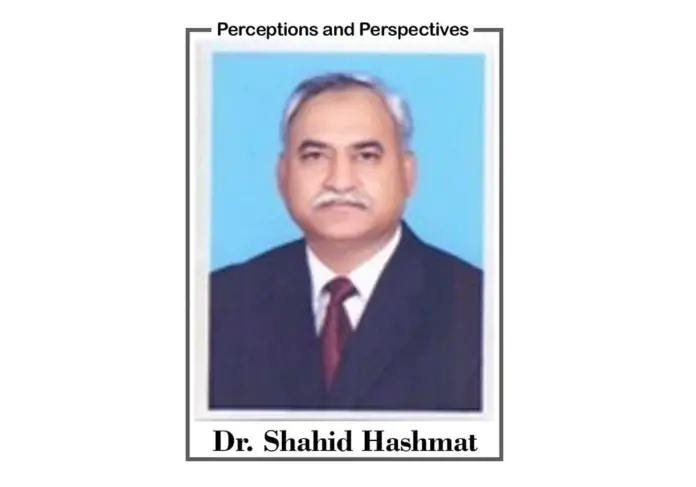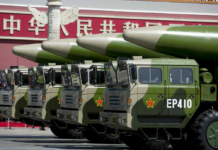For last seven decades, we have been hearing that Pakistan is going through tough times (nazak halaat). Many a times, such situations, be it political instability, economic collapse, foreign debt default, national security threats, or an internal security/ terrorism issues, have created existential consequences for our national freedom and territorial integrity.
After seventy-six years of our freedom, we are still drowned into many controversies. It is very unfortunate that having lost half of our country, just twenty-three years after our independence, we have not yet learned as to how we should live as an honourable independent nation. Independent we may be called, sovereign we were never. We failed to develop a consensus-based constitution for many years. Constitution is a sacred document that forms the basis of existence of a modern state and decides mode of its governance.
Finally, when it was agreed upon, after too much of contestation, the constitution was abrogated within two years. In fact, the seeds for such authoritarian dominance had been laid much earlier. The first formal and complete military intervention took place in 1958 but it had its roots in 1954 when the Army Chief, General Ayub Khan, was appointed as a defence minister in the cabinet. This deviation from the principle of political supremacy over the kinetic forces of the state caused such a great imbalance in our country’s civil-military equation that the lost balance could never be restored. Since 1958, Pakistan has experienced alternation of military and civilian rule. Though, the duration of each military rule has been longer than any single civilian government formed since then.
Politicians have blamed the military for its extra constitutional ambitions and adventureism whereas every successive military regime accused most politicians of committing mega corruption and looting and plundering the national exchequer. Civil bureaucracy and judiciary have also partnered with military and civilian regimes to get their share in power dividends. Though, few honest judges have scrupulously tried to defend their professional independence, yet the fact remains that our history has no shortage of those judges who, willingly and happily, accorded legal cover to all military inventions. Our judiciary has also condoned abuse of power by civilian rules, who wanted to behave in more autocratic and authoritarian manner than military rulers.
However, our politicians can not be absolved of their omissions and commissions of accepting and supporting the extra constitutional regimes for want of patronage or for petty gains and personal interests. Proverbially, it is common saying in Pakistan that most, if not all, political trees grew up in military nurseries and orchards. What was the result of such activities – anarchy, chaos, socio-political fragmentation, and mistrust. Resultantly, the national institutions could not grow from infancy to maturity. Till sixties, Pakistan moved on fairly well due to the momentum of civil administration, military, and economic, financial, and judicial institutions left by the British Raj. These institutions were, carefully, created, developed, and protected by British colonial masters. Their purpose was total control and supremacy over local people and to extract as much of wealth and resources as was possible.
After independence, there was a need to develop a new governance model based on the principles of justice, fairness, and socio-economic well being of the masses. The state should have accorded priority to establishing law and order for providing security to the people at large. Simultaneously, it was imperative to focus on quality education and technical skills to develop human resource. Another important aspect was national health security through a network of quality hospitals at district, tehsil and town levels and village dispensaries. Of course, provision of better job opportunities and creation of conducive and business friendly environment was also important to create wealth, alleviate poverty and improve the living standards of the people. The list of such desirable actions is too long but suffice to say that new policies and plans were required for building a nation and state that were young and inexperienced.
All such goals could have been achieved though a fair, just, and participatory governance in which all segments of the society were genuine stakeholders. That would have been a win-win situation, which could be attained through meaningful, substantive, fundamental, and sustainable reforms. But since Pakistan inherited a feudal and highly divided class-based society, it became easy prey to elite capture. The feudal lords, and politico-military and bureaucratic elite were only interested in safeguarding their self/group interests by protecting and perpetuating the status quo. There was an apparent power struggle, aimed at confusing and deceiving the masses but no one dared to step on each other turf that had been gradually and systemically designed and accepted as a default arrangement or a fait accompli. In fact, everyone wanted to expand its share in power.
We must understand that state of anarchy and chaos, in many states, favours the forces of exploitative status quo as compared to egalitarianism that demands social, political, and economic equality through reforms. Therefore, we see all traditional political forces joining hands with each other. They are focusing on power grabbing and sharing rather than looking to reforms and public good. Under such agendas of enriching themselves, political instability suites all major stakeholders and guardians of status quo. That is what we have witnessed in last seventy-six years. Most of the political leaders and parties only differ and contest with each other on their share of power to control financial resources of the state.
They compromise with each other and join hands under mutually beneficial formulas.
The recent elections have exposed the traditional political players and forces. Though, these elections have resulted in a split mandate, yet the fact remains that people, at large, have rejected and disapproved all old and traditional parties and groups. People have expressed their desire for egalitarian change through ballot. Whereas no party has obtained clear majority, PTI supported candidates, despite all odds and difficulties, have emerged as a single largest elected group. Notwithstanding numerous legal impediments, which have been recently created for them, they represent people’s will and aspirations. To repeat the PDM episode, PML-N and PPP have joined hand, once again, to deny formation of government by those who have gained clear majority. Of course, our constitutional provisions and electoral laws allow formation of a coalition government, but question remains if a minority party government, with many caveats and compromises, will be able to steer the country out of ongoing crises that are multiplying with alarming progression.
PML-N and PPP have hinted on making a ‘unity government’ albeit minus some old partners of PDM. Will it be a true ‘national unity government? Of course not. Still there is time for rising above petty self/party interests. Either PTI should be asked to form a genuine coalition government, as no single party can make it based on the seats won by it, or an effort should be made to develop consensus on making a genuinely ‘national unity government’ with proportionate representation of all political parties. Unfortunately, the elections are not leading us to a sustainable political stability. In any case, nation should be mentally ready for another elections sooner or later. We have already suffered a lot from perpetual political instability that has led to economic meltdown and precarious security environment. Let the political stability prevail for our country to move forward and get out of regressive circles. We must not forget that ‘perpetual political instability is a recipe for disaster.







